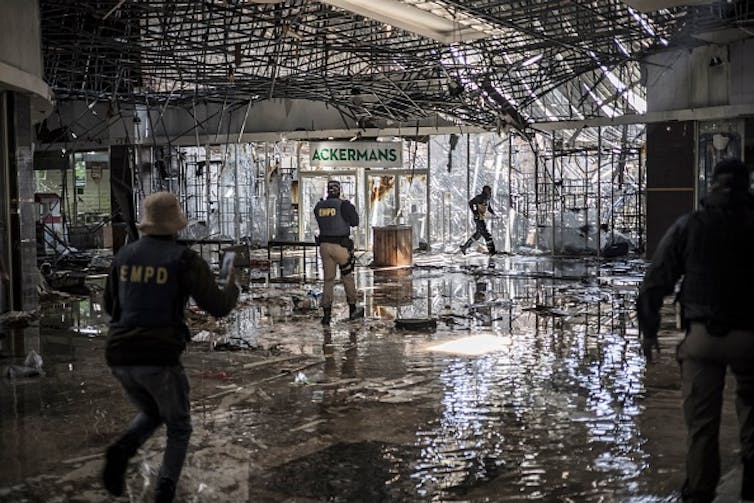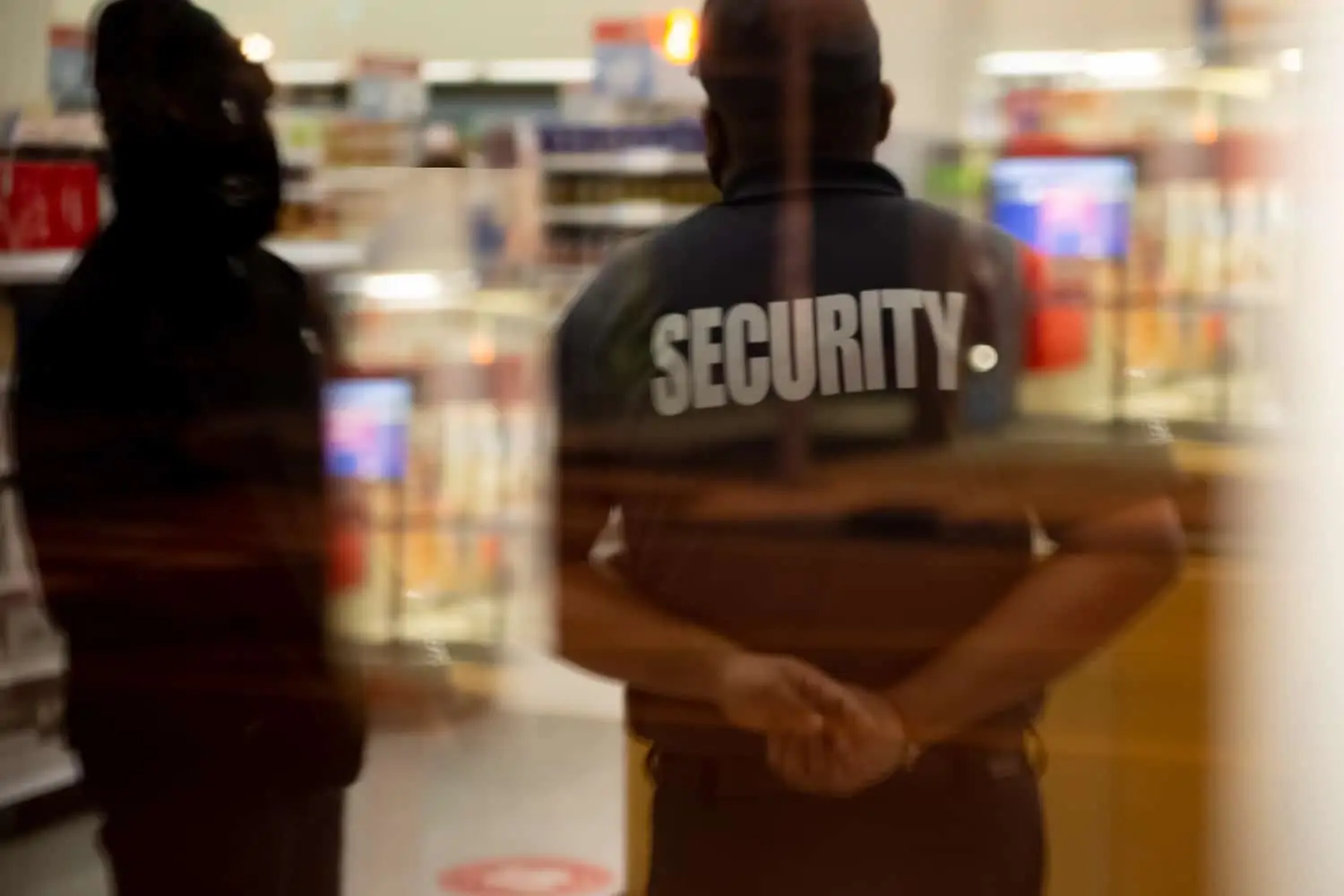Guy Lamb, Stellenbosch University
The looting of businesses, shopping centres and warehouses in South Africa over the past week, particularly in the KwaZulu-Natal and Gauteng provinces, has taken place at an unprecedented scale. It has affected both poor and middle-class areas. Private as well as government property has been damaged and destroyed. People have been injured and lives have been lost.

A variety of narratives have emerged in an effort to explain the looting frenzy. Some have accused die-hard supporters of former president Jacob Zuma of fuelling the unrest. Others have intimated that the looting is a consequence of state capture and the high level of criminality in South Africa.
There have been suggestions that the current disorder is akin to a rebellion of the poor brought about by acute food insecurity.
Research findings on looting, nonetheless, suggest that such phenomena are rarely caused by one thing. Rather, it’s often the outcome of various factors.
Looting in South Africa has taken place intermittently for decades in the context of an ongoing crisis of poverty, inequality and unemployment. It occurred under apartheid and continued to take place after democracy 1994. But it has traditionally been largely confined to marginalised urban and peri-urban areas.
Incidents of looting have often been synonymous with outbreaks of xenophobic violence and service delivery protests. These have overwhelmingly happened in townships and informal settlements in which shops and businesses owned by foreign nationals have been plundered.
A study on xenophobic violence and the spaza shop sector by myself and researchers from the Safety and Violence Initiative showed that looting was often a highly localised phenomenon. That is, foreign-owned spaza shops (small, informal retail outlets) were vulnerable to looting in communities where a combination of factors were at play. Among them were intense xenophobic attitudes, ineffective measures to regulate competition among shop owners, dysfunctional community leadership and the alienation of foreign shop owners.
We noted in our study the uncomfortable reality that a key driver of looting was that it was perceived by the looters to be socially acceptable. And it was often encouraged and endorsed within social and community networks.
Our findings echo those in a number of publications on looting in the US and England.
However, as underscored in our report, looting does not spontaneously emerge. It usually comes about due to instigation by influential individuals or groups who actively articulate that looting against specific targets is permissible and justifiable.
The drivers
In political violence literature, the process of active encouragement is often referred to as brokerage. A good example was during the storming of the Capitol building in Washington DC. Trump supporters were actively encouraged to engage in acts of sedition by leaders of extremist groups.
Brokerage has been a central feature of the current looting spree in KwaZulu-Natal and Gauteng. Supporters of Jacob Zuma have been actively encouraging South Africans to engage in acts of violence and civil disobedience.
Individuals who are more prone to violence and criminal offending tend to initiate the looting. Ordinary people may then join. Acts of looting are often contagious and develop a life of their own. This is due to group dynamics where acts of looting by some may encourage others.
In addition, collective disorder offers a degree of camouflage and impunity for criminal actions.
The absence of capable guardians, such as police and private security, can also contribute to looting by ordinary people.
Another important observation from the xenophobic violence study was that the looting of spaza shops tended to be more widespread in KwaZulu-Natal and Gauteng. This was due to the greater prevalence of groups and networks willing to engage in various forms of collective violence. Action taken included protests, extortion, political assassinations, taxi conflicts and hostel violence. This mainly entails violence between groups of residents over control of hostels, which are often badly maintained.
Recent reports have suggested that groups and networks like this have contributed to igniting and accelerating the present spate of looting.
The intensity of the ongoing looting in parts of KwaZulu-Natal and Gauteng signifies a convergence of brokerage, an upsurge in attitudes that looting is socially allowable, and a willingness of certain pro-violence groups and networks to actively facilitate looting across the two provinces.
But these factors don’t adequately account for the significant shift of the looting into middle class retail areas and commercial properties.
The grand scale and bold nature of suggests well-resourced “hidden hands” that have expertise in provoking and instigating civil disorder.
Poor state of security
A report published in December 2018 revealed deeply troubling findings about state security in South Africa. The report was drawn up by the high-level review panel on the country’s State Security Agency.
In particular, it showed that elements within the intelligence services at the time had access to large sums of money and had not only fuelled political factionalism but had engaged in sophisticated “dirty tricks” operations against governing party factions aligned to President Cyril Ramaphosa.
The police minister announced on Wednesday that former intelligence operatives and Zuma loyalists, some of whom may still be on the State Security Agency payroll, were under investigation for possibly instigating the looting and disorder.
Guy Lamb, Criminologist / Lecturer, Stellenbosch University
This article is republished from The Conversation under a Creative Commons license. Read the original article.
